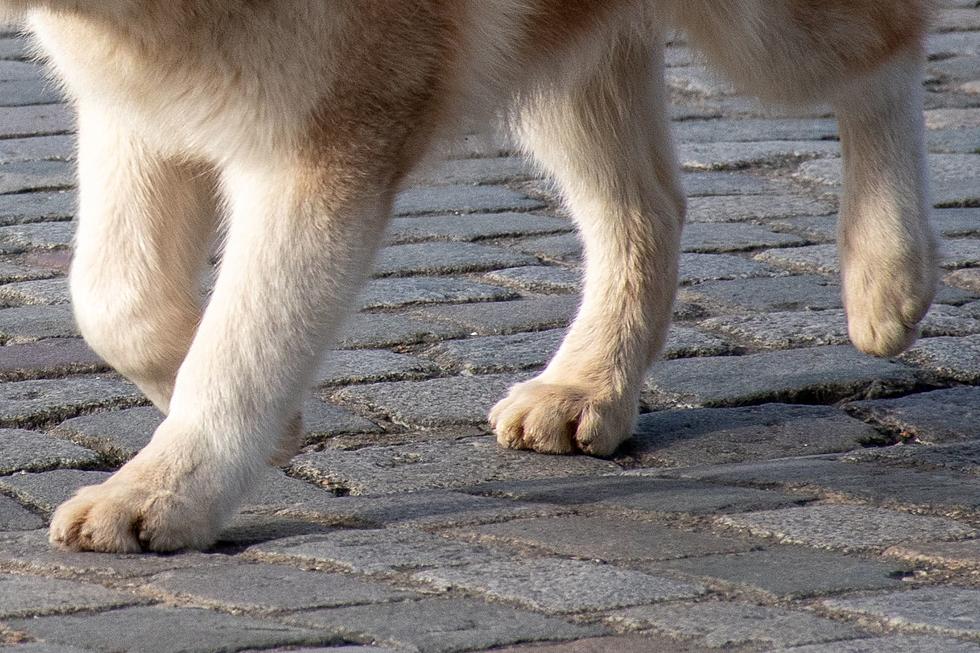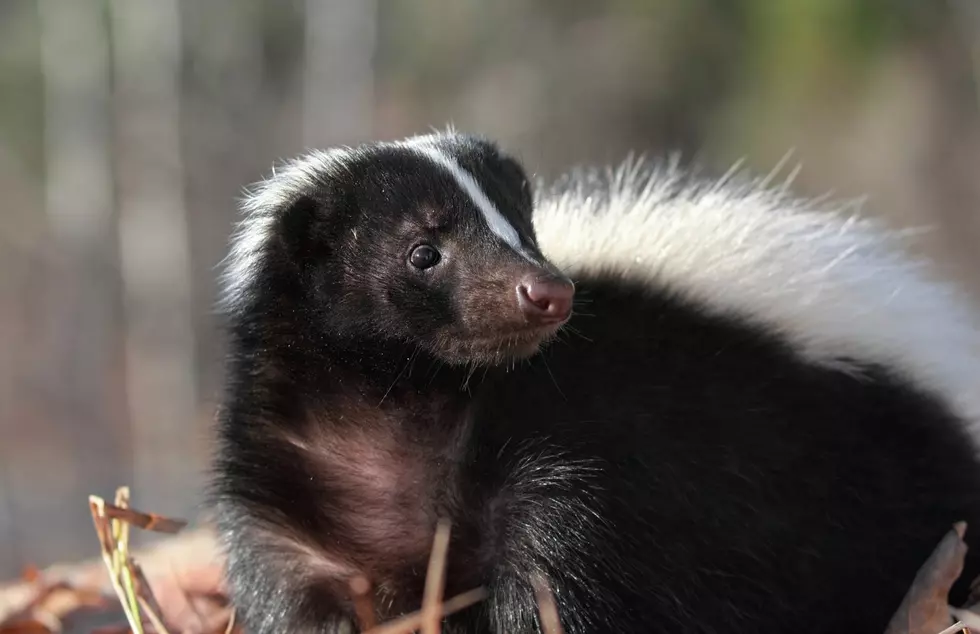
What to Do if You or Your Pet Get Sprayed by a Skunk in Maine?
In what's a less than pleasant "this week in history," three years ago, I was sprayed by a skunk for the first (and hopefully last) time. I was letting my dog out, and the little stinker got both of us. It was a terrible experience, to say the least. I had to drive to the store to buy a special skunk shampoo, and this was during the pandemic, so lucky for me, everyone was wearing masks. This memory has me wanting to take a closer look at what to do if you encounter one in our beautiful Pine Tree State.

According to Maine.gov, skunks can be found throughout Maine in suburban areas, open woodlands, and agricultural fields. They have pointed heads that they use to root around under logs and debris for insects, berries, fruit, birds' eggs, nuts, corn, and more.
Skunks are primarily nocturnal creatures, so they're most active at night. In the summer, female skunks give birth to litters of four to six kiddos (known as “kits”). These little ones will stay in the den for about six weeks before venturing out to explore the world with their mother.
Now, let's talk about what to do if your pet gets sprayed by a skunk. First and foremost, make sure you're wearing disposable clothing and gloves because that smell can infiltrate everything you're wearing. Take your pet outside to wash them, ensuring that the smell doesn't penetrate any carpet or fabric inside your home. Use paper towels to soak up the area where your pet was sprayed. Then, clean the sprayed area directly before washing your pet at least three times with a full lather of warm, soapy water. You can also find de-skunking shampoo, which can help eliminate the odor.
But what if you're the unlucky victim who gets sprayed? The first thing you should do is take a bath or shower immediately. The skunk spray easily seeps into your skin, giving you a body odor that no deodorant can tackle. Don’t drive to the store like me, it’ll make your car stink, too. Use a lot of soap, preferably dishwashing soap, which is known for its excellent grease-cutting abilities.
Now, let's move on to dealing with the aftermath of a skunk encounter in your home. One crucial tip is to keep the air circulating. Turn on fans to keep the air moving throughout your house. Stagnant air allows the skunk smell to settle deeper into fabrics, so it's best to keep things fresh and breezy. Opening windows alongside running fans works wonders in getting that odor out.
Remember to change out your air conditioner and heater filters before and after treating your home for skunk odor. Skunk smell can cling to these filters, and if not addressed, you might find yourself catching whiffs of skunk through your air vents for months.
If you're struggling to locate the exact source of the smell, try placing small bowls filled with white vinegar around your house. Be mindful if you have pets or small children and consider putting the vinegar on high shelves to prevent accidental ingestion. The vinegar should help absorb much of the smell within 24 hours. Thankfully, the vinegar smell isn't too overpowering, and it will dissipate over time.
Unfortunately, skunk spray has a knack for seeping into the fibers of clothing, making the smell incredibly hard to get rid of. Unless the clothing holds significant sentimental value, it's best to part ways with it. If the oily part of the skunk spray isn't removed, the stink will linger indefinitely.
So, if you find yourself on the losing end of a skunk encounter in Maine like me, don't panic. Remember to follow these steps to tackle the aftermath. With a dash of patience and the right approach, you'll be able to say goodbye to that funky smell.
LOOK: 30 fascinating facts about sleep in the animal kingdom
More From WQCB Brewer Maine









